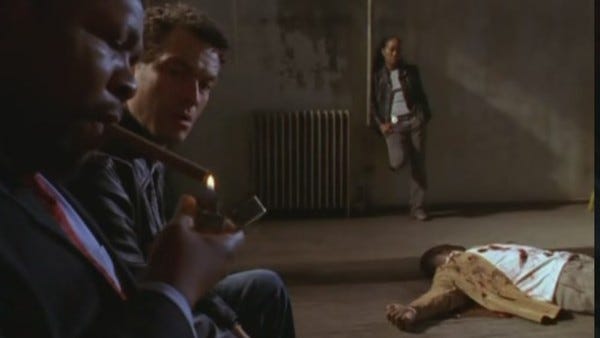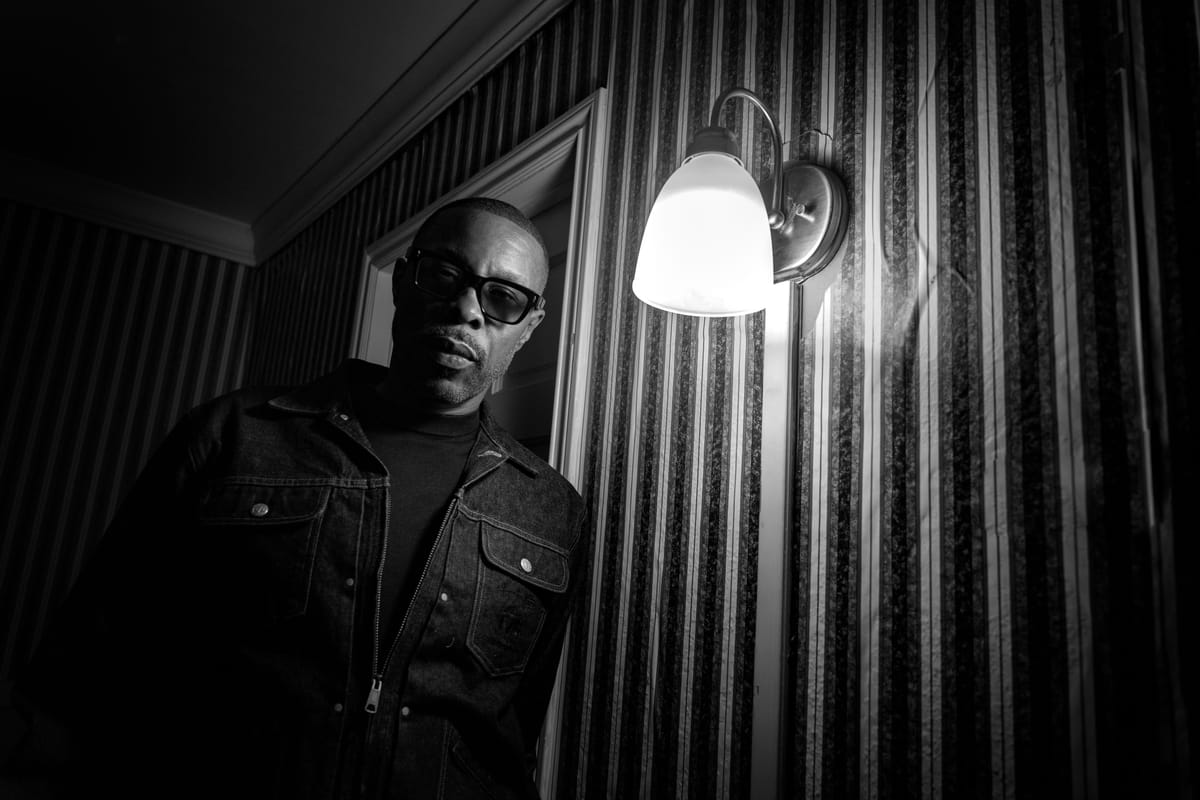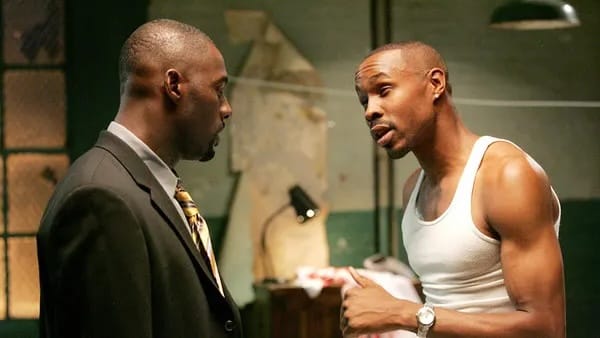In the lauded HBO series The Wire, West Baltimore drug kingpin Avon Barksdale admonished his best friend and partner Stringer Bell with the famously misunderstood and meme-able line: “What I tell you about playing them fucking away games? Yeah, they saw your ghetto ass coming from miles away, nigger. ”
The context was that Stringer had been trying desperately to use the wealth he had accumulated illegally by selling heroin to enter the only slightly more legitimate business of real estate development. Unfortunately, despite learning some basic business concepts taking college courses at night, and learning how to look professional in a suit and tie, he was summarily duped by the political power players and beaten out of a quarter-million dollars. When Stringer came to the bitter realization that he was not going to get a chance to get into the legitimate game, he instantly returned to his origins. He attempted to orchestrate the murder of the corrupt politician that played him like a fiddle.
Of course, Stringer never did get to play those “away games” he was preparing so diligently for. He wound up getting shot up by street rivals, and in a bit of writing genius, he died on the unfinished floor inside of one of the high-rise buildings he was trying to develop. He lay there amongst the sawdust, wood planks, and plastic tarp, well-dressed, young, handsome, intelligent, ambitious, courageous, and as dead as fried chicken—a tragic waste of God-given potential.

As much as people love The Wire, I hope the ultimate message is clear: all money ain’t good money. Just because somebody is sitting there waiting to buy does not mean that you have to sell. So here comes the high inside fastball, brothers and sisters: America cannot get enough of buying the image of Black people dealing and doing drugs- but that does not mean we have to keep selling it.
It would be very easy to blame movie studios, television production companies, and record labels for this mess. But then I would be as jive as the Black writers, directors, and producers who keep serving up fresh batches of movies, TV shows, and hip-hop music that tell and retell, and remix and resell, stories about the drug life, which is today and always has been the foundation of the ‘thug life’ we continue to celebrate so flagrantly and so foolishly. In the end, we are responsible for the stories we tell. The studios cannot buy it if we are not selling it, regardless of where we may find ourselves in the creative hierarchy. And it is not necessarily that all of this programming is poor quality or low-minded. That is neither the point nor the problem.

I am not exactly breaking news here by pointing out that The Wire is universally recognized as one of the greatest shows ever produced for television. Odd, though, that none of the cast members- a mostly Black cast at that- won a single award over the five-season run for their depictions of people caught up in the human sausage grinder of dope peddling, serial incarceration and chronic addiction. I realize since playing in The Wire, he has become an international sex symbol and a bona fide movie star, but the breakout star of the show is not Idris Elba, who brought us Stringer Bell. It is David Simon who wrote and created the show. Simon now possesses the greatest power in all the world of entertainment: he can greenlight any film or television project he wants, or teach at any university he wants, just on spec. And he built this power primarily off of a Black dope drama.
The bizarre reality of Blackness in America is that taking at least one lap through the drug life and recounting it for public consumption seems to be condition precedent for gaining mass appeal and commercially leverageable popularity. That rule applies almost exclusively to us, though. I can only name one famous white man who has openly confessed to a life of crime prior to achieving stardom: that being Tim Allen of Home Improvement and Toy Story fame. But that’s it. By contrast, there are figures in hip-hop who claim to have had a previous life that was grounded in dope dealing. It is like a twisted rite of passage for Black guys who are seeking any part of the pop-culture spotlight, regardless of where you come from. The most popular MC in hip hop history is Jay Z.

I could go on and on but you get the point. The worst part is that there is almost always a great deal of exaggeration and mythmaking going on with these guys. For those who are unfamiliar with our criminal justice system, confessing publicly to crimes you actually committed is ill-advised. Unless of course you are completely full of shit and you never were a drug dealer or shot anyone. Then you are in no peril because there is no crime against being a poser, pretending to be a tough guy so you can boost the sales of whatever you might be pushing. In the old days that was called ‘perpetrating’ and that was deplorable. But white folks started paying top dollar and opening doors for Black criminality in mainstream media and the floodgates opened. In fact there are so many Black dudes claiming to have sold crack that the math has become unfeasible: were there even enough dope fiends to go around so all the pushers could get rich or die trying?
To be fair, I am well aware that white folks love and celebrate crime dramas too. From The Godfather to The Sopranos, white people without a drop of Sicilian blood in their veins can mimic the moves and mouth the scripted platitudes of mafia culture. And for the record, I love The Sopranos, and find the fetishization of The Godfather to be one of the lamest markers of American maleness (white and Black alike). But white men can froth over Sonny Corleone and Christopher Moltisanti because they have an unlimited number of counter-images and alternative narratives to plug into. They have ready access to many mirrors that reflect images of themselves as wealthy and wild, powerful and pugnacious, masterful and masculine, all without any connection whatsoever to criminality.

But suppose Black men want to see those combinations of characteristics reflected in themselves on screen. In that case, they have to dial-up dope dealers like ‘Ghost,’ Avon, Stringer, Nino Brown, Doughboy, Cain, Youngblood Priest, or one of the Bumpy Johnsons. Over the years, Black guys have taken full ownership of Tony Montana because Cubans were too smart to adopt his brand of wholesale hedonism as a model for the culture. Of course, they went too far by elevating shameless asshats like Marco Rubio and Ted Cruz, but it is still a much better look than Scarface. Pardon the digression.
The point is this proliferation of Black on-screen criminality is accelerating and as a conscientious Black man, it is disturbing my peace. I don’t have to watch the shows to be impacted by their omnipresence. I am sick of seeing young brothers and sisters who may be talented actors portraying such a narrow and ugly slice of Black life. There is so much of that imagery on screen now that we have gone well beyond normalizing drug culture and have crossed over into centralizing it. And that is a very serious problem in an unforgiving America that loves the wealth generated by the prison industrial complex, but is impervious to the suffering of the souls it consumes.
This post originally appeared on Medium and is edited and republished with author's permission. Read more of David Saint Vincent's work on Medium.

